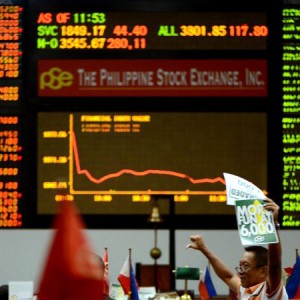Excess funds circulating in the country’s financial system helped lower the government’s borrowing costs this week, according to the central bank.
Money being withdrawn from special deposit accounts (SDA) have created a temporary spike in demand for all available investment instruments—from government securities to bank deposits—in the financial system, said Diwa C. Guinigundo, Bangko Sentral ng Pilipinas (BSP) deputy governor.
The BSP earlier this year ordered the withdrawal of individual investments from the facility. As a result, the financial system is now awash in cash.
The SDA was originally envisioned as a tool monetary authorities could use to siphon off excess liquidity from the financial system and prevent consumer prices from surging.
Recently, however, it became an investment haven for fund managers in search of low-risk finance instruments—something the BSP sought to correct.
Guinigundo said the SDA funds helped push down treasury bill rates, which banks use to price loans to clients. In recent government auctions, the rates have reached record lows.
Last Monday, the yield on six-month treasury bills fell to a record low of 0.001 percent, identical to returns on shorter term 91-day government debt notes.
However, once all affected funds are withdrawn from SDAs by the end of November, the yields on government securities and interest rates offered by banks will start to normalize, he said.
“As soon as the adjustment in SDA is over, I think we will see some developments that may alter interest rate movements in the economy,” Guinigundo said.
Another factor that may push borrowing costs up is the tapering of the US Federal Reserve’s bond-buying program, which the market has been anticipating since June.
The US Federal Reserve currently buys up to $45 billion of mortgage backed securities and government treasuries every month. This finances bulk of the US government’s deficit and keeps interest rates down, helping the US economy recover from the 2008 crisis.
Once this tap of liquidity is shut, Guinigundo said, interest rates around the world will start to increase.


